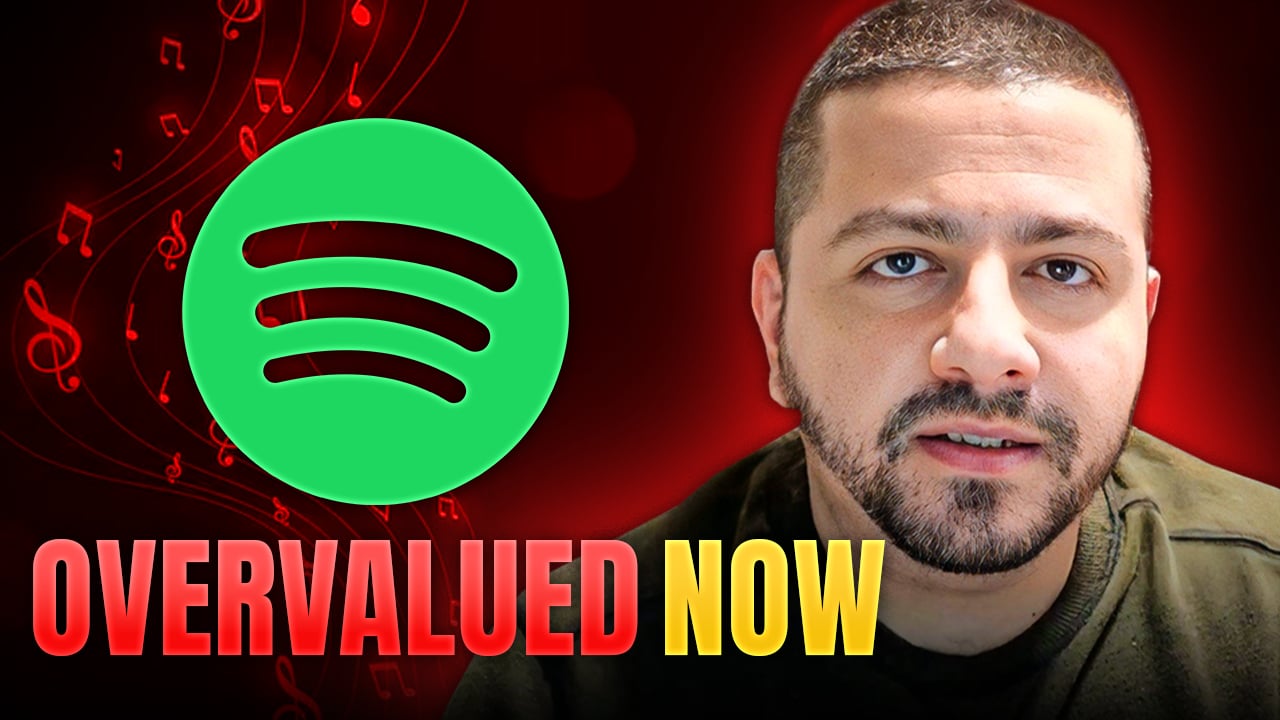Spotify (SPOT 5.81%) is making an acquisition -- one that may seem a little odd, at first glance, for a tech company that specializes in music streaming. Spotify has agreed to a deal with The Ringer, a sports and entertainment blogging site founded by Bill Simmons. Terms of the transaction have not been disclosed, but the sale has been reported by some media outlets to be valued at as much as $250 million.
Simmons' staff at The Ringer is full of talented sportswriters, but Spotify's purchase was probably not inspired by any particular love of sports journalism. What Spotify really cares about is the popularity of Simmons himself with a certain type of sports fan -- the podcast-loving type.

Image source: Getty Images.
Bringing in The Ringer
Simmons has been a big name in sports media since way back in the early 2000s when he was better known by his moniker, The Sports Guy. He arrived at Disney's (DIS +3.69%) ESPN in 2001 with a popular column and soon became a force to be reckoned with within the sports media company. His columns and podcasts held forth not just on sports but on fandom itself, as well as plenty of other topics that were only tangentially related to sports, including movies and TV shows. Simmons eventually used his clout to found an online vertical dedicated to long-form sports journalism in 2011. That website, Grantland, met its demise in 2015, not long after a falling-out between Simmons and his old bosses at ESPN led to his departure from Disney's sports media outlet. The next year, Simmons founded his own sports media company: The Ringer.
The Ringer has its fingers in a few different areas of media. There are the articles, which are the first things visitors to The Ringer's site will notice -- Simmons poached former Grantlanders from ESPN to build out an impressive roster of writing talent. The Ringer does videos, too, and has a shop full of merchandise for sale. And then, of course, there are the podcasts.
Simmons and his podcast empire
Simmons has been doing podcasts since way back in the mid-2000s when podcasts themselves were still a relatively new concept. Though some recent mega-hits have changed the popular perception of the medium, it's worth remembering how ridiculous Simmons' listenership numbers looked back in the mid- and late-2000s. In June 2009, for example, ESPN bragged that Simmons' podcast episodes from that year had been downloaded more than 10.7 million times. That's a pretty big number for a year when, according to the Pew Research Center, only 11% of Americans could report that they had listened to a podcast within the past month. Podcast mega-audiences are a more familiar concept now, but Simmons has stayed in the mix. According to Podcharts, Simmons' podcast is the 38th most popular on the market, at the time of this writing.
Crucially, Simmons' The Ringer has turned its founder's podcast into a flagship offering that supports a growing empire of other podcast efforts. The Ringer's "The Big Picture" podcast ranks 100 on Podcharts. "The Rewatchables" breaks the top 150. And those mentioned so far are just three of literally dozens of podcasts that The Ringer churns out -- the site has podcasts covering everything from MLB and the NBA to popular films, celebrity gossip, and The Bachelor.
The Ringer reportedly earned more than $15 million in podcast ad sales in 2018. Though no one of its podcasts can match the success of a smash hit like Crooked Media's "Pod Save America," the sum total of The Ringer's offerings reportedly earn it revenue in the same ballpark as what Crooked Media brings in -- and The Ringer's strategy is arguably more sustainable, given that it relies less on its top performer than does Crooked Media.
Spotify's path to podcasting glory
All of this is a big deal to Spotify, which is very much in the podcasting business these days. There are a few reasons for this.
For one thing, hit podcasts are a path to "original content" of the sort that has been such a big deal in streaming video. A Spotify-exclusive podcast from Simmons would help Spotify differentiate itself from competitors like Apple (in fact, Apple's streaming music service, Apple Music, doesn't even have podcasts -- Apple houses those separately in its Podcasts app).
Spotify would also save money -- in the long run, anyway -- by funding or buying podcasts that draw user listening hours away from licensed songs. Unlike Netflix and most other streaming video services, Spotify typically pays out royalty fees on a per-stream basis. If a Bill Simmons fan kills an hour listening to Spotify-owned Bill Simmons content instead of rocking out to Dropkick Murphys' classic 2001 Celtic punk album Sing Loud, Sing Proud, then that saves Spotify some royalty payments. But it doesn't work that way for Netflix, no matter how many people choose Netflix's new Mark Wahlberg vehicle Spenser Confidential over licensed content like The Departed (2006).
Most important of all are the advertising implications. Spotify's podcast success means a big leg up for the company's targeted advertising platform. Podcast-listening habits, as it turns out, are more useful for building consumer profiles than music-listening habits are. Podcasts are a big help to Spotify's targeted advertising goals. Besides, advertising within podcasts is the norm -- which has allowed Spotify to get away with aiming podcast ads even at users paying for Spotify's ostensibly ad-free premium subscription. And studies suggest that advertising during podcasts offers better returns than does advertising between musical tracks, perhaps because the former is more likely to find "active listeners."
All of this is why Spotify has been moving to acquire and develop original and exclusive podcasts for months now. Acquiring The Ringer will be the latest such move -- and, given Simmons's podcasting muscle, the biggest one.
Music to Spotify's ears
It's impossible to say right now if Spotify will be a good steward of The Ringer's non-audio mission. Simmons himself has been willing to fight for his writers in the past, so perhaps that's a good enough reason to believe in The Ringer's other projects. Members of The Ringer's writing staff, however, are already sharing concerns with the press. From the perspective of Spotify and its investors, though, the fate of writers and videographers is very much beside the point. What matters is that Spotify appears to be securing its most promising podcast content yet, a move that fits nicely into the strategy the streaming giant has been pursuing in recent months.







